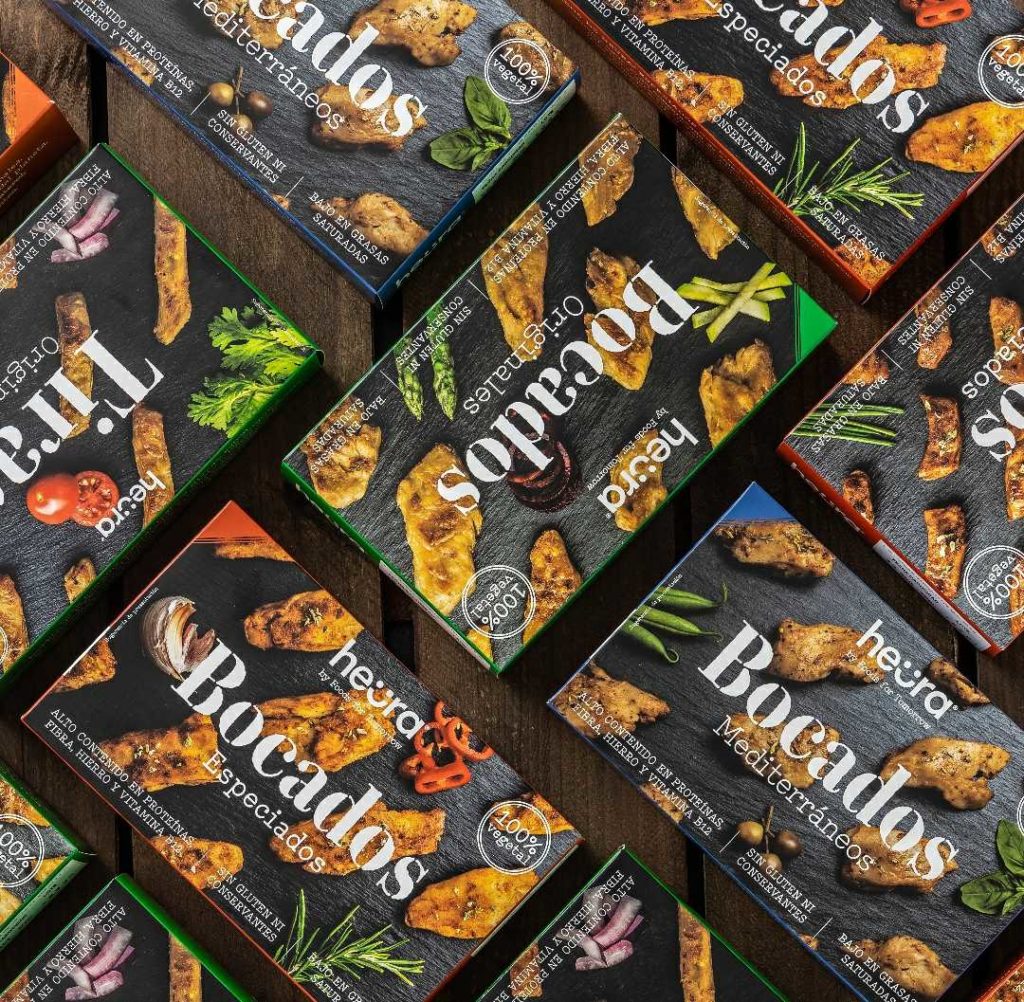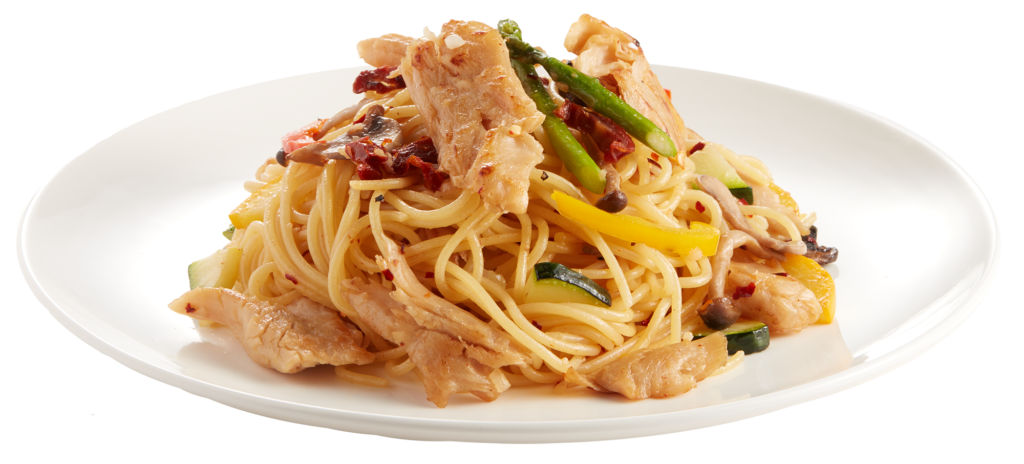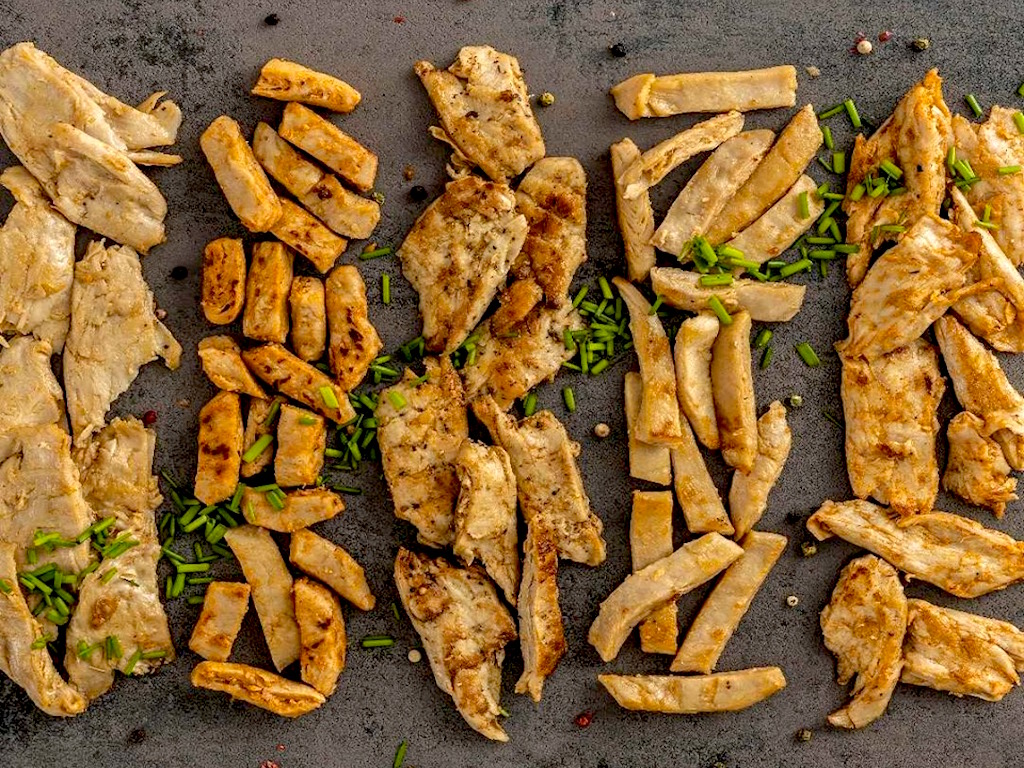Spanish Startup Foods For Tomorrow Launches Heura Plant-Based Chicken In Hong Kong & Singapore
3 Mins Read
In partnership with Green Monday, Barcelona-based vegan startup Foods For Tomorrow will be launching their Heura plant-based chicken products in Singapore and Hong Kong this week. Already a success in their native Spain, Heura hopes that their Asian launch will expand their global presence ahead of launches across Europe and in South America. Foods For Tomorrow’s mission is to offer more high-protein and nutritious plant-based food options. In the wake of our climate crisis, Heura is one of the many solutions propping up to help reduce the carbon footprint associated with consuming meat and dairy products.
The Heura product line, created by by Foods For Tomorrow will be debuting at the Grand Hyatt Singapore in collaboration with Green Monday with a 4-day launch that includes a Heura Food Truck, a poolside BBQ and specially created dishes at other Grand Hyatt restaurants. In Hong Kong, Heura products will launch at Green Common outlets across the city this September both in retail form (November) and as part of the chain’s deli menu (starting today).
Founded in 2017 and self-funded as of today, Foods For Tomorrow is a Spanish startup offering a range of 100% plant-based alternatives under the brand Heura. Made from non-GMO soybeans, their entire range of protein, which resembles the texture and flavour of chicken, is free from gluten, cholesterol, dyes and preservatives.

In addition to containing only “clean” ingredients (emphasis company’s own), the vegan-friendly product is also high in protein, with 19.7 grams of protein per 100 gram serving, as well as significant amounts of fibre, iron, zinc and enriched with vitamin B12, making Heura products a better protein source from a nutritional standpoint as compared to beef.
Producing their plant-based protein also comes at a fraction of the environmental footprint, requiring 94% less water to produce compared to veal and beef. It also generates much lower levels of carbon emissions compared to livestock farming, and uses up less land. While producing 1kg of beef requires 20kg of legume-based feed, Heura uses only 0.5kg of soy to create an equivalent amount of protein.
Although the use of soy as an ingredient has been hotly debated, Foods For Tomorrow believes that it remains one of the best plant-based protein sources from a nutritional standpoint. The company is also committed to sourcing soybeans from farms that do not promote deforestation. The other main ingredients featured in Heura products include olive oil, vitamin B12 and various spices like paprika, ginger, pepper, nutmeg and cardamom.
Commenting on their Asian debut, Foods For Tomorrow Chief Marketing Officer Bernat Añaños said: “When we make meat directly out of plants accessible to everyone, the change will be inevitable. We are here to be the generation that changes the food system into one that takes into account our current climate emergency.”

Heura’s current product range includes Spiced Chunks, Original Chunks, Original Strips, Spiced Tacos, Heura Vegan Pizza and Mediterranean Chunks, all variations on their plant-based chicken in different shapes, allowing for flexibility when used by chefs and home cooks. In Spain, the products are popular amongst vegetarian and omnivore consumers alike, and the company has secured distribution across national retail and fast food chains, with upcoming launches in Portugal and plans to expand in France, Italy and Germany.
This article was updated on December 12 2019 to include additional information on the protein content of Heura products.
Lead image courtesy of Green Queen, all other images courtesy of Foods For Tomorrow and Green Common.




